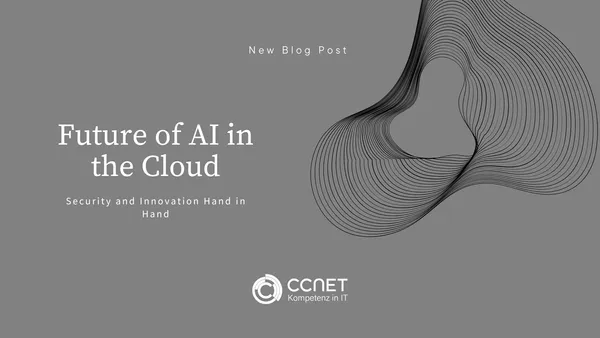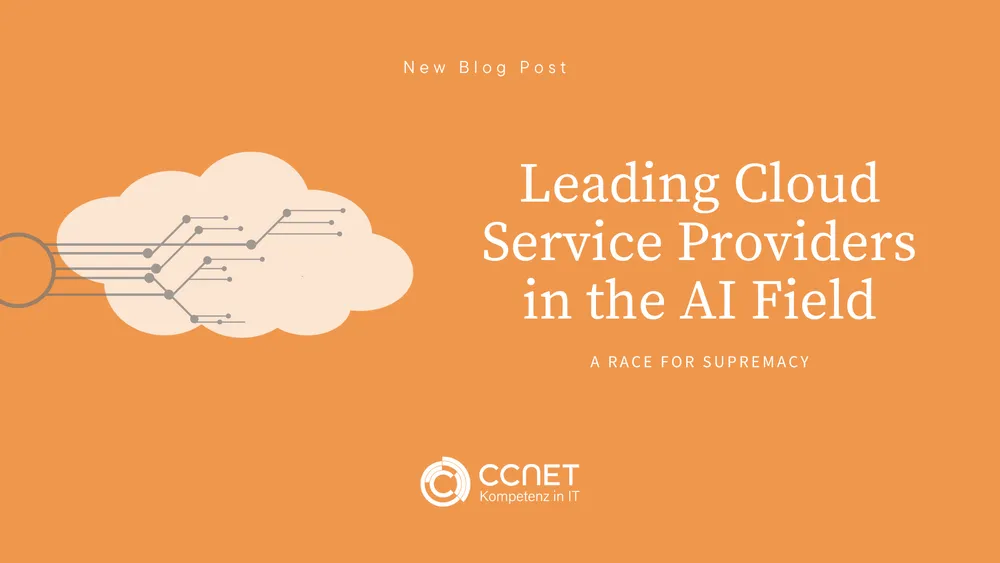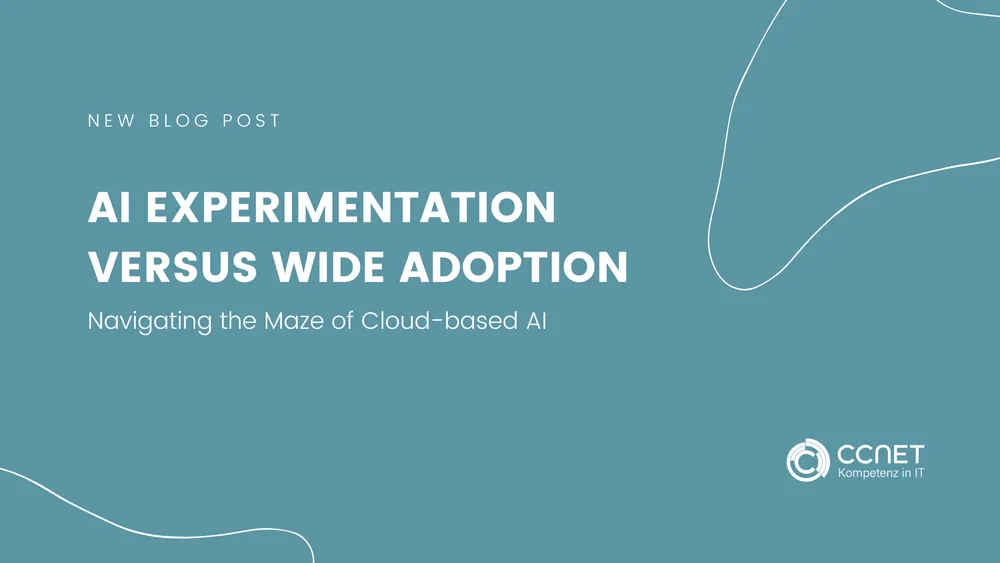
CCNet
Aug 7, 2024 • 3 min read

Future of AI in the Cloud: Security and Innovation Hand in Hand
The rapid development and adoption of AI technologies in the cloud have fundamentally changed the landscape of digital transformation. As companies continue to leverage the benefits of cloud computing platforms to develop innovative AI-powered applications, security considerations are increasingly gaining importance. In this blog post, we take a look at future trends of AI in the cloud, highlight the challenges related to AI security, and provide strategic recommendations for a secure implementation of AI services.
Future Trends in Utilizing AI in the Cloud
Digitalization and technological advancement have enabled companies to utilize generative AI models to create new products and services. Cloud-based AI services such as Azure OpenAI and Google's Vertex AI offer scalable solutions driving innovation. We observe an increasing integration of AI models into mission-critical applications, leading to enhanced efficiency and new functionalities.
A significant trend is the democratization of AI facilitated by AI platforms in the cloud. This development allows small and medium-sized enterprises (SMEs) to harness AI technologies and develop tailored solutions. The growing availability of open-source AI models and the ease of their deployment through cloud services reinforce this trend.
Challenges in AI Security
The introduction of AI in the cloud brings forth new security risks. Data security, privacy protection, and the integrity of AI models are central concerns. Handling sensitive data used for training AI models poses a particular challenge, with risks of data exfiltration or the creation of bias in AI models, leading to unfair or discriminatory decisions.
Another critical issue is the vulnerability of AI systems to manipulations, known as adversarial attacks. These attacks can result in AI models producing erroneous results, particularly in critical applications such as healthcare or the financial services industry, with serious consequences.
Strategies for Secure Implementation of AI Services
1. Integrate Security from the Beginning
It's crucial to incorporate security considerations from the outset of the AI project. This involves establishing security best practices and data usage policies to ensure data security and privacy protection.
2. Check AI Models for Bias and Fairness
Companies should regularly assess their AI models for biases and fairness. This includes applying fairness metrics and conducting audits to ensure that the models do not make discriminatory decisions.
3. Apply Robust Security Protocols
Implementing robust security protocols and utilizing encryption techniques are essential to protect the integrity of data and AI models. Access controls and authentication mechanisms should be strictly enforced to prevent unauthorized access.
4. Form a Multidisciplinary Team
The complexity of AI security requires a multidisciplinary team comprising security experts, data scientists, AI ethicists, and legal experts. These teams can provide a holistic view of the risks and ensure that ethical considerations are integrated into the development process.
Conclusion
The future of AI in the cloud is promising, offering countless opportunities for innovation and efficiency improvements. However, the security risks associated with the adoption of these technologies must not be underestimated. By implementing strategic security measures and fostering a culture of security, companies can fully leverage the benefits of AI without compromising on security. Balancing innovation and security will be crucial for the long-term success of AI applications in the cloud.
FAQ about Artificial Intelligence
What are the advantages of using AI via cloud platforms?
Cloud-based AI services such as Azure OpenAI or Vertex AI enable scalable, powerful applications. They promote innovation and make AI accessible to smaller companies as well.
Why is the democratization of AI an important trend?
Because cloud platforms make AI technologies accessible to small and medium-sized businesses, enabling the creation of customized solutions.
What are the biggest risks associated with using AI in the cloud?
The main risks include data exfiltration, model bias, and manipulation through adversarial attacks.
Which security strategies are particularly important in AI projects?
It is important to plan security measures from the outset, including encryption, access controls, and a clear data strategy.
Why is it important to check AI models for fairness?
Because biased models can lead to unfair or discriminatory decisions, especially in sensitive applications.
What are best practices for the secure introduction of AI in companies?
These include early security planning, regular audits, robust technical measures, and the establishment of an interdisciplinary team.
What role do interdisciplinary teams play in AI security?
They enable a comprehensive risk assessment and ensure that ethical, legal, and security aspects are considered together.


